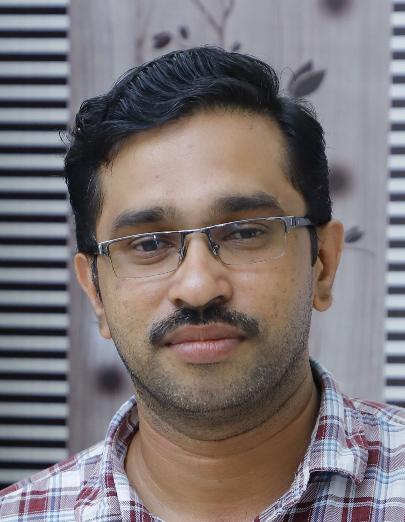Basics in German Language
Faculty
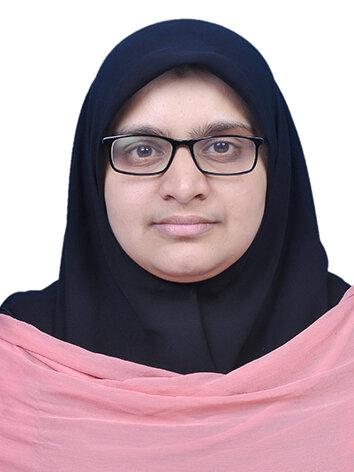
About the Course
Eligibility
Course Objectives
- Enhancing communication and collaboration in German Language
- Encourage autonomous language learning
- To know more about other cultures
- Foster creativity and imagination
Expected Course Outcome
- The course will help the learners to acquire day to day interaction skills in German language
Survey Research and Data Analysis
Faculty

About the Course
Course Objectives
- To provide an understanding of fundamentals of social research
- To discuss the different forms of research and its applications
- To understand various tools, techniques and methods of data collection and to identify their applications in different contexts.
- To provide a survey experience through field survey
- To make use of Microsoft Excel and SPSS for data analysis
Expected Course Outcome
NCC ‘B’ Certificate
Faculty
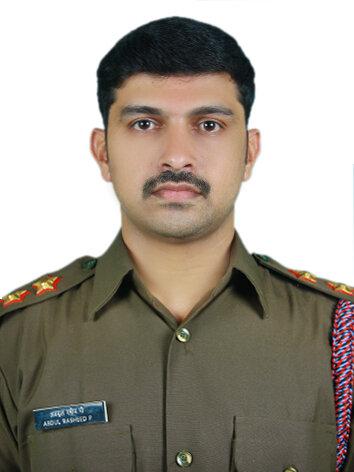
Certificate – B
NCC ‘C’ Certificate
Faculty

Certificate – C
Grading in Certificate
Parliamentary Proceedings
Faculty

Syllabus
Course Outcome
Entrepreneurship Skill Development
Faculty

Certificate – B
Course Name
Certicate in Entrepreneurship DevelopmentAdmission procedure
Admission to the course shall be made on merit basis and as per Rules and Regulations of EMEA College, Kondotti.Eligibility
All Third Year Degree students of EMEA CollegeThe Duration of Study
The curriculum of study for the Certified Course shall be 30 hours, and shall be During the First half of the Academic Year.PROGRAMME STRUCTURE
- Four Module
- Theoretical and Practical
- 60% Attendance is Compulsory for Attending Examination.
- Lecturing Time 3.30 to 4.30
- The medium of instruction and examination shall be English
- Examination Conducted After the Completion of 30 Hours Lecturing
-
Examination out of 50 marks it includes 40 from
External and 10 from Internal after the End of
the course. The evaluation scheme for each
course shall contain two parts:
- Internal assessment
- External examination
- External viva-voce shall be conducted along with the examination.
- Mode of examination is MCQ(Multiple Choice Mode)
Objectives
- To enable the students to acquire knowledge about the Classification of Enterprises
- To equip the students with the skills of Organize An Enterprise
Grade
|
Exam marks |
90%=/> |
A+ |
|
Exam marks |
89 % to 80% |
A |
|
Exam marks |
79 % to 70% |
B+ |
|
Exam marks |
69% to 60% |
B |
|
Exam marks |
59% to 50% |
C+ |
|
Exam marks |
49% to 40% |
C |
|
Below 40% |
D-Reappear |
|
Political Crisis In West Asia Case Of Arab Israeli Conflict
Faculty
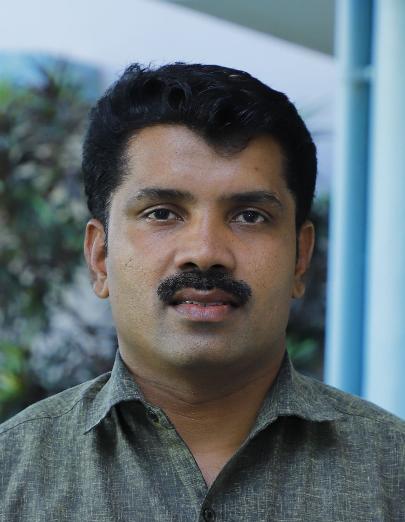
Course Objectives
Research Writing
Faculty


Objectives
- To introduce students to the basics of academic research
- To introduce students to the methods in research writing
- To familiarize students with various stages of writing research paper
- To train students in using appropriate language in writing research projects
Outcomes
- The students are familiarized with the methods in research writing
- The students are familiarized with various stages of writing research paper
- The students are trained in using appropriate language in writing research projects
- Students will be well equipped to come out with quality final year projects
- Students will be given an opportunity to publish a research article on the successful completion of the course
Module I: Beginning Research
- Definition
- Characteristics
- Objectives
- Subjective/Objective Research
Module II: Research Methodology
- The students are familiarized with the methods in research writing
- The students are familiarized with various stages of writing research paper
- The students are trained in using appropriate language in writing research projects
- Students will be well equipped to come out with quality final year projects
- Students will be given an opportunity to publish a research article on the successful completion of the course
Module III: Conceptual Background
- The students are familiarized with the methods in research writing
- The students are familiarized with various stages of writing research paper
- The students are trained in using appropriate language in writing research projects
- Students will be well equipped to come out with quality final year projects
- Students will be given an opportunity to publish a research article on the successful completion of the course
Module IV: Writing Research Papers
- The students are familiarized with the methods in research writing
- The students are familiarized with various stages of writing research paper
- The students are trained in using appropriate language in writing research projects
- Students will be well equipped to come out with quality final year projects
- Students will be given an opportunity to publish a research article on the successful completion of the course
Module V:Style Guides
- The students are familiarized with the methods in research writing
- The students are familiarized with various stages of writing research paper
- The students are trained in using appropriate language in writing research projects
- Students will be well equipped to come out with quality final year projects
- Students will be given an opportunity to publish a research article on the successful completion of the course
Evaluation Pattern: Assessment (50 Marks)
|
Particulars |
Marks |
|
Written Assignment on a given topic (2) |
10 X 2 = 20 Marks |
|
Attendance |
10 Marks |
|
Final Project: Research Article Writing |
20 Marks |
|
Total |
50 Marks |
Familiarization of Basic Tools
Faculty
The Lack of awareness about testing
1.1 DIGITAL MULTIMETER, BASICS AND OPERATION
Practical:
- DC Voltage Measurement
- AC Voltage measurement
- DC Current Measurement
- AC Current Measurement
- Diode & Continuity Test
- Transistor Testing
- Resistance Measurement
- hFE Testing of Transistor
- Effect of Impedance etc.
1.2 CRO / DIGITAL STORAGE OSCILLOSCOPE , OPERATION AND BASICS
Practical:
- DC Voltage measurement (DC Coupling)
- AC Voltage Measurement (AC Coupling)
- Frequency Measurement
- Understanding the Bandwith
- Effect of Impedance !!
1.3 BASICS OF POWERSUPPLY , OPERATION
Practical:
- Preparation of Basic Power supply
- Preparing regulated Power supply using regulator IC
- Line Regulation, load Regulation
- DC Voltage Setting
- Limiting the Current
- Voltage and Current Capacity.
1.4 FUNCTION GENERATOR , OPERATION
Practical:
- Adjusting the Voltage, Frequency, Duty cycle, DC Offset and Measuring the Parameters
Software Development
Faculty

Syllabus
Return Filing - Income Tax & GST
Faculty

Objectives
- To Equip Students with the specialized knowledge in the field of Taxation System.
- It provides opportunity to learn Indian Taxation System and enhance their skills in the field of Taxation.
- Equipping the students for career in various vocations.
- Equipping the students for Self-Employment and application oriented jobs in Government, PSU’s, Private Organizations
EVALUATION PROCESS:
CONTENT
Module 1 (7 hours)
Module 2 (7 hours)
Module 3 (8 hours)
Module 4 ( 8 hours)
PROJECT WORK
Salient features of certificate course
- Theory and Practical session as per curriculum
- Lectures include entire process of Filing of Return and Evaluation Process.
- At the end of course candidate will be able to file the Income Tax return of Direct Tax & Indirect Tax.
- A certificate will be issued to the successful candidates
Solid Waste Management
Faculty

CERTIFICATE COURSE SYLLABUS- 2021-2022
PAPER NAME: SOLID WASTE MANAGEMENT (CODE: BTCC2122)
Learning Objectives:
- An overview of the steps of waste management to final use or disposal.
- Selection of most suitable SWM options in a specific local context.
- Conceptual designing of waste conversion/ treatment processes.
- Development of innovative solutions of SWM in urban areas
- Legal Aspects of Solid Waste Management.
References
- Aja S. Kalamdhad, Jiwan Sing, Kondusamy Dhamodharan- Advances in Waste Management, Springer Nature Pvt Ltd. 2019
- Paul H. Brunner, Helmut Rechberger- Handbook of Material flow analysis for environmental, resources and waste engineers-CRC press, Taylor&Francis group. 2017
- Karin M. Ekstrom – Waste Management and sustainable consumption, Taylor & Francis group, London and Newyork. 2015
- Stephen Burnley- Solid Waste management, John wiley &Sons Ltd, 2014
- Ramesha Chandrappa, Diganta Bhusan Das- Solid Waste Management Principles and Practice, Springer- Verlag Berlin Heidelberg, 2012.
Basic Android Applications
Certificate – B
Word Processing and Data Entry
Faculty
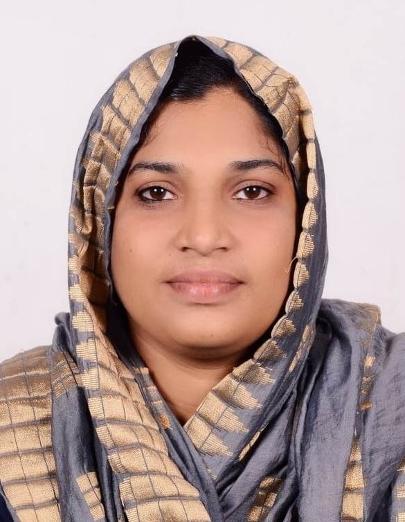
- Course Name: Word Processing & Data Entry
- Course Code: C95
- Duration: 120 Hrs.(3 Months)
SYLLABUS
Computer Fundamentals
- Introduction, Generation of computers, classification of computers
- Application of computers
- Types of software
Operating System Basics – Linux and Windows
- Operating System Basics: Review of MS DOS - Internal/External commands
- Windows - User interfaces like Desktop/ Taskbar/Start Menu/Find
- Windows Accessories – Calculator/Paint/Notepad/WordPad
- My Computer/Explorer/Folder/Shortcuts
- Linux – Introduction, Concept of Home directory, Login and logout procedure.
- X Window Applications
Data Entry Practice – English & Malayalam
- Database Data Entry
- Typing Tutor – Keyboard familiarity exercises in English & Malayalam
Word Processing Package – Microsoft Word and Open office Writer
- Word processing features, Opening/Saving documents
- Manipulating windows/Document enhancements
- Proofing document/Printing document
- Tables
Word Processing Package – Microsoft Word and Open office Writer
- Worksheet basics
- Formatting worksheet
- Simple Formulae
- Graphs and Charts
- Data sort
- Printing worksheets and charts
Introduction to Desk Top Publishing (DTP) & Presentation Package
- Page Maker
- Adobe Photoshop
- Microsoft Power Point and Open office Impress
Database Concepts – Using Access
- Definition – database/Relational database
- Creating a database/creating a table
- Add/edit/view records
- Sort/search/filter/print records
- Modify database structure
Internet E-mail & PC Management
- Introduction to Internet
- E-mail Web Mail/ Outlook
- Basic PC components
- Disk Management Basics
- Introduction to Memory Backup and Backup Devices
- Handling Printer
- Review on Windows & Linux Desktop Features
- General Troubleshooting
Basics in Spanish Language
Faculty

About the Course:
- The Course is meant to be an introduction to Spanish language that helps the learners to grasp the basic sentence structure and build a foundational vocabulary in Spanish.
Course Objectives:
- Enhancing communication and collaboration in Spanish Languag
- Encourage autonomous language learning
- To know more about other cultures
- Foster creativity and imagination
Expected Course Outcome:
- The course will help the learners to acquire day to day interaction skills in Spanish language
Basics of Logistics Management
Faculty
ABOUT THE COURSE
Course objectives
Course outcome
- To enable the students to understand the meaning, types and importance of logistics.
- To make them understanding the meaning and importance of supply chain.
- To make the students able to understand the idea and importance of goal setting.
Course structure
An Introduction to English Literature
Faculty

About the Course:
- Introduce the canon of English Literature.
- Analyse different periods of English Literature
- Enable the learner to critically appreciate the major writers and literary works of English literature
- Understand the social, political and historical condition of Britain since 1400
Expected Course Outcome :
- Module 1- Early Period
- Module 2- Elizabethan and Jacobean Age
- Module 3 – Neoclassical Age
- Module 4- Romantic Age
- Module 5- Victorian Age
- Module 6- Modern Period
- Module 7- Contemporary Period
References:
Assessment Methods
- Seminar : 10 Marks
- Assignment : 10 Marks
- Exam : 80 Marks
Project Identification and Business Idea presentation
Faculty
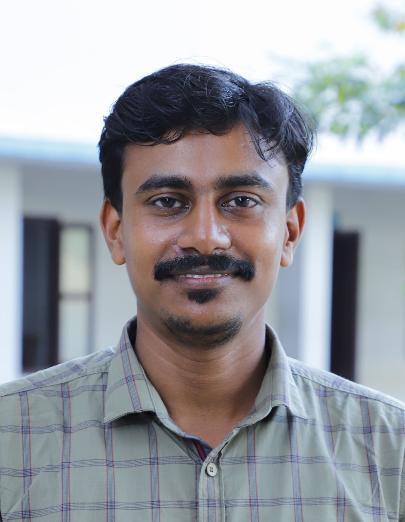
Module 1( 5 Hrs)
- Project-Meaning and definition-Features-Importance-Stages in project management-Types of projects- Risks involved with projects-Limitations of project
Module 2(10 Hrs)
- Project Identification-Meaning and features-Identification steps- Idea generation techniques-SWOT Analysis- Brain storming- Other constrains-Short listing ideas-Screening and evaluation of ideas-Techniques of project identification
Module 3(10 Hrs)
- Investment opportunities in Kerala- Techno Economic survey of DIC, Malappuram –Motivation to Entrepreneurs-Business incubation centres- Start up businesses-Kudumbashree as a successful micro enterprise project in Kerala.
Module 4(10 Hrs)
- Identifying the dream projects and business idea presentation before expert committee.
References
- 1. Entrepreneurship Development, Vasant Desai, Himalaya Publishing House
- 2. Vasanth Desai, Small Business Entrepreneurship, Himalaya Publications.
- 3. MSME Act2006.
- 4. District Industrial Potentiality Survey Report-MSME Development Institute, Thrissur
- 5.Arise,Awake-Rashmi Bansal
- 6. www.kudumbashree.org
Basics in Project Preparation and Research Writing
Faculty

Asst. Professor of Commerce
Microbiological Analysis of Packaged Drinking Water
Faculty
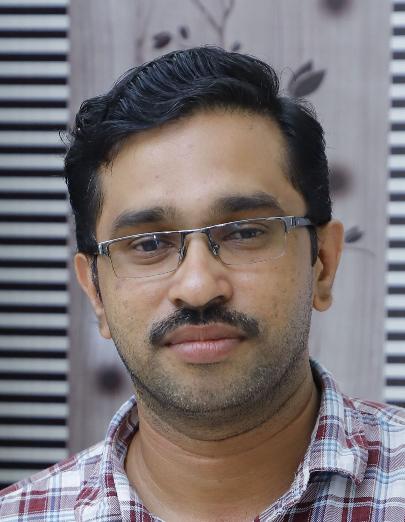
Learning Objectives
- Explain the general methods for detection of microorganisms in packaged drinking water
- Develop awareness about microbiological water quality criteria and standards, and their relation to public health
- Understand important packaged water contaminating microorganisms and the diseases they cause.
- Learn how to run accurate water microbiological quality tests and how to plan remedial measures to ensure total absence of microorganisms in packaged drinking water
Startup Management
B.Voc Professional Accounting and Taxation
Certificate Course: Startup Management
Lecture hours per week: 4
Credits: 4
External: 80, Examination 2.5 Hours
Total Hours : 50
Course Objectives :
References:
- 1.Donald F. Kuratko, Jeffrey S. Hornsby. New Venture Management: The Entrepreneurs Roadmap, 2e, Routledge, 2017.
- 2.Anjan Raichaudhuri. Managing New Ventures Concepts and Cases. Prentice Hall International, 2010.
- 3.Vijay Sathe. Corporate Entrepreneurship.1e, Cambride.2009
Toxicology of Food Additives
Faculty

Teaching hours – 40 hrs
Course Description:
Objectives:
Students will learn:
- To understand basic principles of food and nutritional toxicology related to oral exposure routes.
- To provide an overview of potentially toxic constituents present in the food supply intentionally or naturally-occurring.
- To understand absorption, metabolism and excretion of xenobiotic compounds.
- To provide factual information on the topic of food safety involving specific chemical toxicants, food additives, residues, etc. such that they can assimilate and utilize this knowledge as professionals in their field.
Assessment: All students need to
- a)submit one assignment,
- b)attend two internal examination
- c)viva
- Shibamato T. and Bjeldanes L., Introduction to Food Toxicology, Academic Press, Inc. San Diego, CA. ISBN 0-12640025-3 2. Deshpande, S.S. (2002).
- Handbook of Food Toxicology, Marcel Dekker Inc. NY ISBN 0- 8247-0760-5
- William H. W., Essentials of Environmental
Computerized Financial Accounting
Faculty
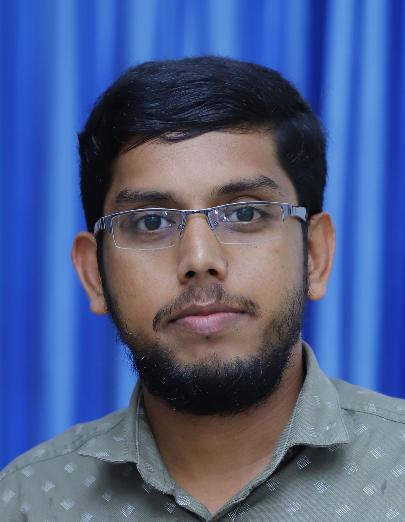
- Introduction to Accounting ;- Definition, Basic terms, Objectives, Advantages, Limitations, Methods, Types of accounting, Accounting concepts & conventions and Rules of accounting
- Posting and journalizing
- Ledger preparation, Trial balance
- Financial Statements;- preperation of Trading and Profit & Loss A/c and Balance Sheet
- Introduction to Tally_ ERP_9 - Startup, Screen components, Mouse/ Keyboard coventions, Quiting.
- Company creation, Alteration, Deletion, Shut(close) company and company creation
- Set-Up of Accounts- Group creation, Alteration, Deletion
- Ledger Accounts Set- Up - Single Ledger Creation, Alteration, Deletion, Multi Ledger Creation, Alteration, Deletion
- Accounting Vouchers
- Inventory/ items & goods/ Stock;-Single& Multiple Stock Group Creation, Single& Multiple Stock Item Creation
- Featurs of Tally_ERP_9:- Accounting Features, Inventory Features, Statutory & Taxation Features
- VAT
- GST;- IGST,CGST,SGST
- Adv. Inventory Featurs;- order processing, receiving, rejuctions, stock journal
- Manufacturing Journal, Bill of Material, Point of Sale, Cost Centre, and Cost category
- Bank Reconcilation Statement
- Payroll
- Fundamentals
- Introduction to Word Processing, MS Excel, MS PowerPoint
Professional English-Arabic Translation
Faculty

Nutritional Toxicology
Faculty

Kerala Tourism and Heritage Studies
Faculty
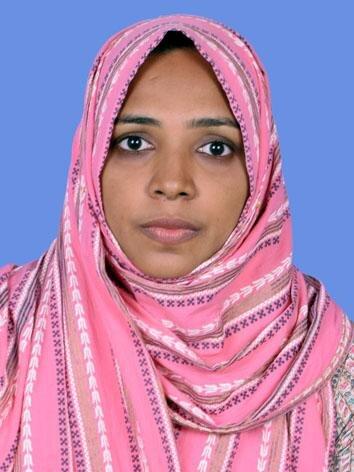
ISI Guidelines of Water Quality Analysis
Faculty
